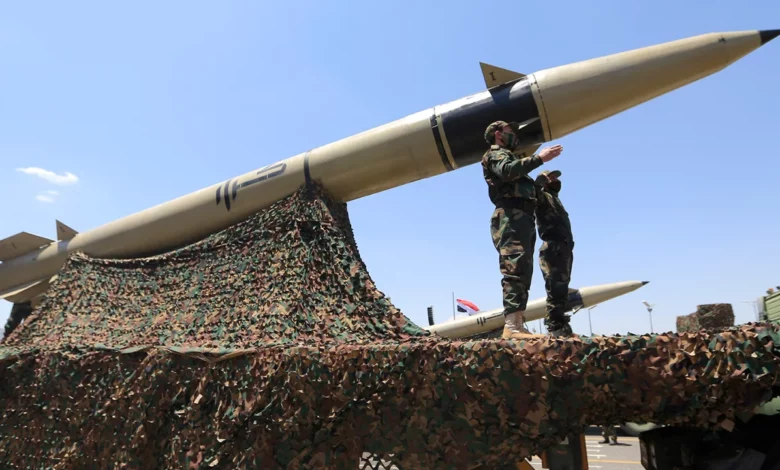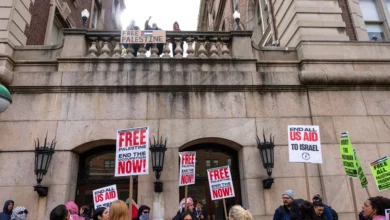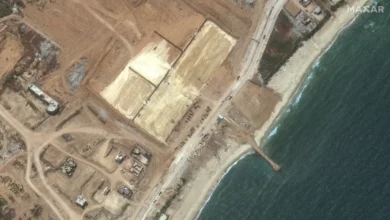
The Israeli military said Tuesday it had thwarted an aerial attack by Iran-backed Houthi rebels in Yemen, as fears rise across the region that the Israel-Hamas war could widen.
Brig. Gen. Yahya Saree, a spokesperson for the Houthi forces, told Houthi-owned Al-Masirah TV that ballistic missiles and drones had been launched against targets in Israel in what he said was the third operation in support of the Palestinian people.
He added that there were plans for more strikes until the “Israeli aggression” ceased.
“Our armed forces launched a large batch of ballistic and winged missiles and a large number of drones at various targets of the Israeli enemy,” he said, referring to all of Israel as “occupied territories.”
The Houthis are a Shia political and military organization in Yemen that have been fighting a civil war in the country against a coalition backed by Saudi Arabia. They have voiced support for the Palestinians and organized protests in Yemen against Israel’s offensive in Gaza.
Earlier on Tuesday, the Israel Defense Forces (IDF) said in a statement that it had used its Arrow aerial defense system for the first time to successfully intercept a surface-to-surface missile that was fired from the area of the Red Sea.
The use of the Arrow defense system, which is designed to intercept high altitude missiles, indicates the Houthis used a more advanced, long-range missile in the attempted attack.
Israeli jets also intercepted what the IDF described as “aerial threats” in the area. The IDF said all threats were intercepted outside of Israeli territory.
The attempted strikes on Israel mark an escalation by the Iran-backed Houthis, with regional rivalries heating up despite the United States scrambling to contain a potential Middle Eastern war.
Iranian Foreign Minister Hossein Amir-Abdollahian warned Tuesday that an “expansion of conflicts in the region” was happening and that resistance group members would “not remain silent against America’s full support” of Israel and “will not wait for anyone’s advice.”
“We need to use the last political opportunities to stop the war and if the situation gets out of control, no side will be safe from its consequences,” he said, according to a readout from Iran’s Ministry of Foreign Affairs.
The Houthi attacks on Tuesday follow another thwarted attempt two weeks ago. On October 19, a US warship near the coast of Yemen shot down four cruise missiles and 15 drones over a period of nine hours as they were heading north along the Red Sea, according to a US official familiar with the situation. Their trajectory left little doubt that the projectiles were headed for Israel, the official said.
Pentagon press secretary Brig. Gen. Pat Ryder said the missiles were fired by Iranian-backed Houthi forces in Yemen and were launched “potentially toward targets in Israel.” US interceptions of Houthi launches are exceedingly rare.
Iran, despite decades of draconian US-inspired sanctions, has continued to provide training and arms to the Houthis in Yemen, the Syrian regime, Hezbollah in Lebanon, Hamas and Islamic Jihad in Gaza.
Hezbollah, another powerful Shia militia, and Israel have been engaged in daily skirmishes on the Israel-Lebanon border since the war began. In October, the US deployed two carrier groups to the eastern Mediterranean to deter Iran, Syria and Hezbollah from opening new fronts against Israel.
Since the latest war in Gaza erupted following Hamas’ deadly October 7 rampage, US bases in Iraq and Syria have also come under sporadic attack.




